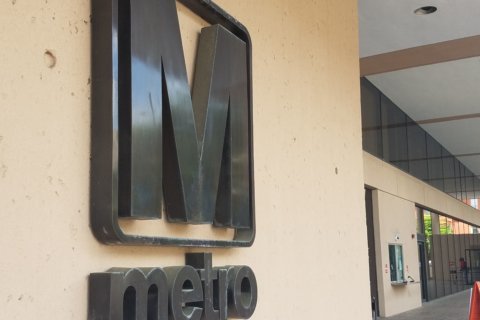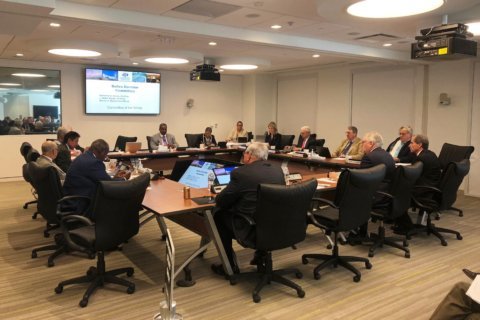WASHINGTON — Metro’s largest union suggested Wednesday that there will not be a strike this week as it outlined its demands for the first time since Sunday’s strike authorization vote.
In a statement, Amalgamated Transit Union Local 689 said there was “good progress” made Wednesday in a second meeting with Metro aimed at addressing the union’s concerns. The next meeting with Metro management is scheduled for Monday, the union said.
A person familiar with this week’s discussions said the focus has been on changes to custodians’ job assignments; Metro’s policies on sick leave, absenteeism and discipline; and new random background checks for workers.
In a letter to politicians across the region Wednesday, the union finally described the changes it hopes to see:
- No suspensions for workers who came in late last Thursday as part of what appeared to be a coordinated “late out” (see below);
- A halt to work location changes for custodians until an arbitration panel rules on a challenge to it that is already pending (see below);
- Quicker resolutions of grievances and more strict compliance with the collective bargaining agreement;
- Reduced private contracting for things such as bus operations at the new Cinder Bed Road garage and certain jobs along the new Silver Line to and beyond Dulles International Airport;
- An end to the new random background check policy for Metro workers that began this month;
- An end to job cuts when positions are vacant;
- “Stop unnecessary terminations”;
- “Meet and confer with the union about the WMATA absenteeism policy,” which requires 72-hours notice for the use of sick leave in many cases;
- “Immediately address the flawed” new pay and timekeeping system used to clock in and clock out;
- Meet and confer with the union about a new disciplinary policy;
- Address problems tied to a change with Metro’s privatizing of certain medical oversight and checks; and
- Allow insurance to decide which workers are eligible for long-term disability rather than solely the medical department.
The union voted Sunday to authorize President Jackie Jeter and the local’s executive board to call a strike at any time, which would violate Metro’s founding documents and the existing union contract, but had not had even this lengthy list of demands until sending it to regional lawmakers Wednesday afternoon.
Jeter is in her fourth and likely final term as union president, with new elections set for early December.
Several union members expect Jeter will not run again, although she has not formally announced the decision. Candidates she is expected to back will likely face challengers.
The current contract for the approximately 8,000 active members of Local 689 expired two years ago, and an arbitration panel is expected to rule shortly on the terms of a replacement. The policies under discussion are not likely to be directly included in that ruling that will instead focus on issues such as wages and pensions.
Even if there is no strike, riders face a pair of round-the-clock work zones for the rest of the summer. The Red Line is split in two from Saturday through Labor Day for concrete repairs and other fixes, and the Blue Line is shut down with service for Orange and Silver lines significantly cut back in late August.
Why now?
A key trigger for the sudden explosion of what had been slow-building tensions was the decision last Friday by Metro to suspend all bus operators and others who reported late to work last Thursday as part of an apparent collective labor action.
At least some of the approximately 500 workers who reported late to work last Thursday were given discipline forms that stated, “You failed to report as scheduled as part of a concerted collective job action.”
A copy of the form provided to WTOP left some blank space to provide an explanation for the late arrival, which would normally only lead to modest disciplinary steps, then said that the worker would be suspended for three days due to a failure “to provide any information or evidence amounting to a legitimate explanation for your conduct.”
The document said the suspension would be scheduled by Metro sometime between now and the end of the year so that all the workers were not suspended at that same time.
One spur of last week’s action was changes to custodians’ job assignments to effectively move all of them to rail stations rather than having some work in other Metro facilities. The union is concerned that while it did not reduce the number of union jobs, it means Metro will contract out the work at the other facilities.
Other workers have expressed concerns that new measures in recent years meant to instill accountability instead simply instill fear and support nitpicking by supervisors.
Like strikes, coordinated “late outs” and other labor actions are not permitted at Metro. That is a major reason the agency and its unions have binding arbitration to resolve disputes.
There is no set expiration date for the strike authorization vote.
Under ATU policies, the international union would need to approve a strike for it to move forward. The international union declined to comment on whether it would provide such approval given the “many moving parts” in the situation.
The D.C. region’s transit system has not faced a strike of any kind in decades.








